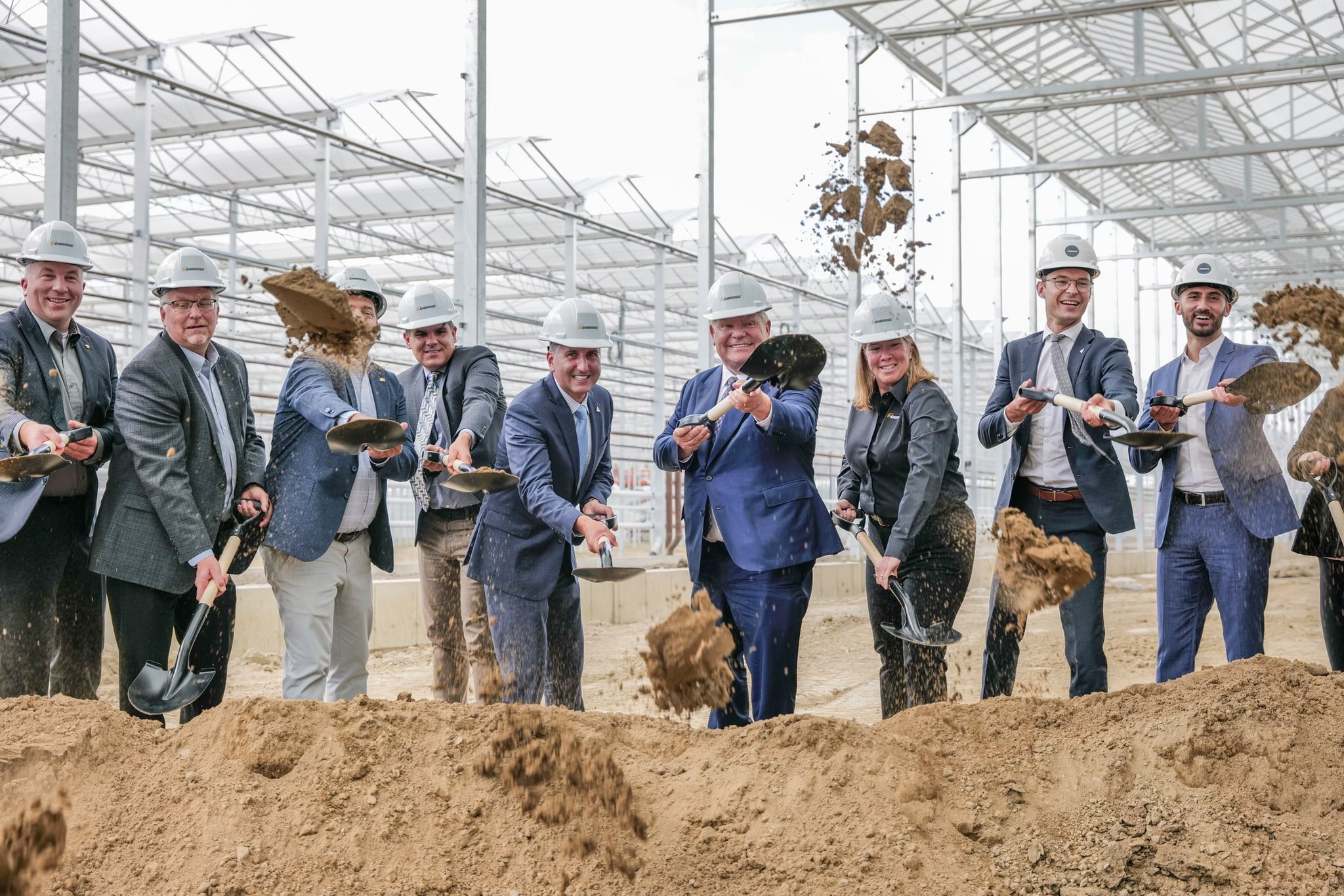
The federal government ‘sees a long-term future for the oilsands.’ Here’s what you need to know
An internal document obtained by The Narwhal shows how the natural resources minister was briefed...
Get the inside scoop on The Narwhal’s environment and climate reporting by signing up for our free newsletter.
On the morning of the 2024 U.S. election — and a day after Canada released new details of its proposed oil and gas emissions cap — Enbridge Gas President Michele Harradence made a rare public address to tell investors and policymakers that Canada has “a tangle of regulatory knots” that need to be loosened.
Harradence was before the crowd in downtown Toronto to celebrate Enbridge’s transition from a company operating 12 gas streetlamps in downtown Toronto, some 176 years ago, to becoming North America’s largest natural gas utility, serving seven million homes.
The energy giant has spent the last year fighting battles in Ontario to maintain methane-heavy natural gas as the main source of heating at a time when municipalities are trying to shift from fossil fuels to reduce emissions. One of those battles took place at the Ontario Energy Board, which ruled last December that Enbridge stop passing the cost of connecting new homes to natural gas onto homeowners. That landmark decision was overruled by the Doug Ford government in February after senior officials consulted with Enbridge and weighed the impacts on the company’s bottom line, according to reporting by The Narwhal.
All of this has led to questions about Enbridge’s influence on energy policy in Ontario. Harradence’s speech at Toronto’s Empire Club, a nonprofit that hosts talks by politicians and industry leaders on current topics, was a warning call to governments to “simplify the regulatory burden on the energy sector” or risk losing energy investments to the United States.
“Energy investors look at Canada and they see a tangle of regulatory knots, an unwelcoming tax climate and tepid, fragmented incentives that cannot compete with those that are on offer next door,” Harradence told the crowd. “We need to simplify the regulatory burden on the energy sector. The goal should be clear, well-designed regulatory frameworks that offer certainty to investors and regulatory processes that get us to a yes or no in a reasonable time frame.”

Harradence singled out the federal government’s Bill C-59, a new federal bill that includes provisions designed to restrict misleading advertising about emissions-reduction and sustainability efforts — also known as greenwashing — with possible penalties. Last June, Enbridge became the subject of a Competition Bureau complaint alleging it was falsely marketing natural gas as “clean energy” and “low carbon” to Ontario homeowners along its pipeline expansion route. In one ad, the company says “natural gas is cleaner than other fuels and can help reduce your home’s carbon footprint.” But the methane in natural gas is a strong heat-trapping compound that accounts for a third of Ontario’s emissions.
Harradence didn’t address the specifics of Enbridge’s fight against such complaints, but said Bill C-59 “introduces extraordinary penalties against businesses for making environmental claims as measured by an inadequate, undefined standard,” she said. “Quite simply it muddies the water and that uncertainty chases away investment.”
She shared similar sentiments about the federal government’s oil and gas emissions cap, which is expected to be finalized next year as the first legislative attempt to limit the sector’s rising carbon emissions. Harradence said Enbridge is “incredibly responsible … the most responsible in the world.”
“So the idea of having more rules, more regulatory complexity, I just don’t think it’s necessary,” she said. “We’re already demonstrating how responsible operators we are.” Enbridge, like most Canadian energy firms, discloses the emissions it produces in day-to-day operations, but does not report the emissions created when its products are used. One shareholder group has proposed the company start accounting for these end-user emissions, which it estimates make up about 80 per cent of oil and gas companies’ overall emissions, but Enbridge urged staff to vote against it.
Harradence emphasized that the Ontario government also had work to do to reduce “regulatory complexity.” While she repeatedly touted recent energy announcements by Premier Doug Ford and Energy Minister Stephen Lecce to take an “all-of-the-above” approach to meet skyrocketing energy demand (75 per cent increase in the next 25 years), she also sent a word of caution.
“The reality is, it’s becoming increasingly challenging to track energy investments to Ontario,” she said. “That’s due at least in part to a regulatory environment that’s clearly out of step with the government’s goals on economic development and housing affordability.” (The Ontario Energy Board, which is the provincial regulator, said installing new gas infrastructure will cost homeowners more in the long run, in its now overruled decision to apply that installation cost to Enbridge.)
Throughout her remarks, Harradence maintained the importance of natural gas without mentioning its undue impact on the environment.
“We need all energy resources to fuel the economy, to keep costs down and to reach net zero. More nuclear and more oil, more renewables, more carbon capture, more efficiency, more innovation and more natural gas,” she said.
“If we want to get serious investment in Canada, we need to start with energy, investing in reliable, resilient, cost effective energy, and that includes natural gas.”
Get the inside scoop on The Narwhal’s environment and climate reporting by signing up for our free newsletter. On March 17, federal Conservative Leader Pierre Poilievre...
Continue reading
An internal document obtained by The Narwhal shows how the natural resources minister was briefed...

Notes made by regulator officers during thousands of inspections that were marked in compliance with...

Racing against time, dwindling habitat and warming waters, scientists are trying to give this little-known...
